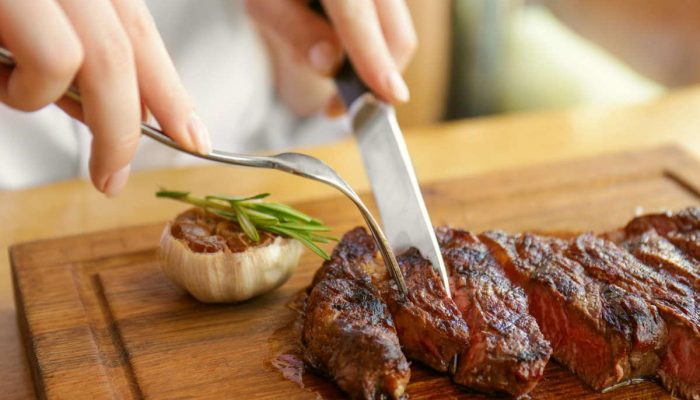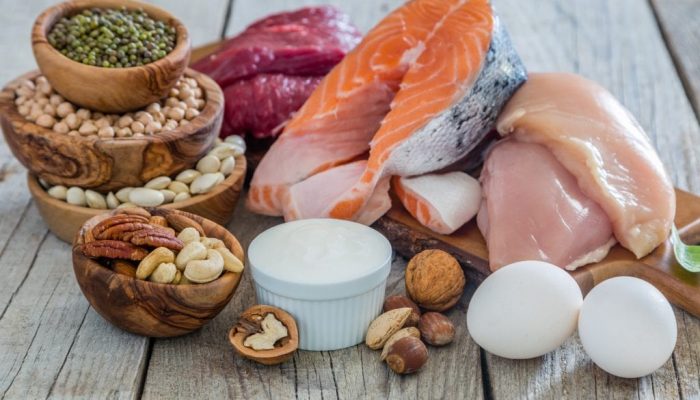It’s kind of ironic how all our lives we’ve been brainwashed to be fearful of the word ‘fat’? How we have been in a bittersweet relationship with all the wonderful foods that we deemed too unhealthy and fatty to consume. Which we did consume after all and were guilty about it.
We all have those, believe me, the similar stories we share as we struggle towards trying to do right by our bodies and lose some in all the right places. The lifelong struggle has brought you to adopt the ketogenic diet plan.
A literal opposite of what you’ve been taught all your life. Consumption of fat. Your body agrees to it. Your mind doesn’t accept it. It can be quite a situation. But what happens if you don’t eat enough fat on a keto diet? We’re here to break down all the science for you to help you ease into your new lifestyle.
How Metabolism Works

Typically, carbohydrates are your body’s favorite food to breakdown and utilize for energy which powers you throughout the day. In your regular everyday diets, the meals are a combination of carbohydrates, protein, and fats, etc.
The body uses carbohydrates and proteins more efficiently, but the fat? The fat is stored away for later use if ever needed. You keep eating, and the carbs and proteins keep getting used up while the fat keeps on piling up, rarely being used for energy.
A body’s ability or the pace to use up carbs and then start using stored fat for providing energy is called metabolism
Putting it in simpler words would be like saying if a person’s body requires more power to operate, it will utilize all the carbs it had so the body had to break down its stores of fat to provide the rest of the required energy too. This is usually the case with fast metabolism.
If only our metabolism could take a lesson or two from this. People with a slow metabolism tend to have the number of carbs enough for their energy requirements, thus keeping their fat stores intact. With time these ‘fat stores’ can overflow and start to look very apparent on us.
The Science of the Ketogenic Diet

It’s a low-carbohydrate and high-fat diet. The principle of the keto diet may sound similar to other low carb diets. But following the above-explained phenomenon, the sudden reduction in carbs intake forces your body to take an alternative route to keep the energy supply up and running.
It begins breaking down all the stored fat and through a metabolic process called ketosis, starts making energy out of it. Ketosis occurs in all our bodies under normal conditions. That’s why it’s completely natural and healthy.
It will not cause any disruption of any of your body systems. Though yes, you might miss all your favorite sugary foods and be sad about it so buck up. The concept is to raise the intensity of the ketosis process to the point where this is the top metabolic process taking place in your body.
In fact, this is great for the body. The ketosis occurs to the accumulated fat around your vital organs, allowing them to function more efficiently, cause a significant reduction in blood sugar and insulin levels. Ketones are the byproduct of ketosis that lets you identify a successful process.
How Do We Know It Works?

For starters, there’s the visual difference and a difference in weight. This occurs when you’re at least more than a few weeks in.
For the initial stages, though, there are several products in the market like ketone testing strips or testing kits that allow you to monitor whether your body has entered the ketosis metabolic process yet or not.
Due to different conditions, fat levels, and metabolic rates, it can be hard for people on the keto diet to know for sure whether it has actually started affecting them or not. So to ensure adherence to plan and to let you know that the diet has begun working for you, this is a non-invasive method to find out.
Why Eat Fats in Keto?

So now that we have a low carb diet, and the ketosis occurs, the question arises, why eat a high-fat diet at all? Won’t that just add more to the fat that I’m initially trying to get rid of? No. You see, the fat stored is usually converted into a slightly different form. The one you consume exists in a different one.
Now your body requires energy to digest the fat and proteins that you just ate but also it needs the energy to carry out the process of ketosis on the already existing fats in your body. The ketosis is simultaneous and corresponding.
What if I Don’t Meet My Fat Goals?

It’s actually important that you do. You do not have to meet the goal at a hardline level but do your absolute best to land somewhere near it. You’re eating your proteins and fats to a certain amount and its enough to keep you satiated. In principle, not eating more fat will lead to a more rapid fat loss.
Is it advised, though? Not really. Why? Because slow and steady wins the race. You need to understand and respect the process. Starving yourself will not get you through months worth of process in a week. Consistently low-fat consumption can lead to problems.
A basic problem of staying too hungry for long is that it keeps pestering you. Eating enough to stay near your fat goals will keep you safe from cravings and unnecessary hunger pangs, which can break your resolve to stick to the keto diet. Or any diet for that matter.
It will also put your body in a constant state of overload in order to provide energy. Consumed fat is easier to break down and utilize than stored fat. So if you don’t eat much fat, your body will have to put in extra effort to keep up to the energy deficit.
How Do I Meet My Fat Goals?

Meeting your fat goals will help you lose weight systematically, slowly and in a much more healthier way. Taking care of your fat goals will allow the keto diet to work without disrupting or affecting your metabolism or calorie-burning capacity.
To keep your calories in check, it’s great to have a keto calculator app on your phone. You can set alarms and reminders on when to eat, what to eat, and keep a record of your keto journey.
In case your taste palate just simply does not agree with adding fat, butter, and even oils to your regular foods, there are alternative methods to increase the fat content dramatically.
MCT oil powder is an additive product that can be used to help achieve your daily fat goals. The effectiveness is, r however limited to the amount of carb intake. For instance, if your carb intake is 20g or less, MCT is effective, but if it is more than 20g, it won’t be much of a help.
Similarly, if your carb intake is 20g or less and you’re eating a lot of proteins along with the average amount of fats, MCT will help but with more carbs and too much protein, MCT may not be a great help unless you cut down proteins a bit.
But What About Proteins?

Proteins are great as a part of the diet. You can eat low-carb, medium-fat, and high protein diet, and that will keep the diet going but to be honest, defeats the purpose of keto.
In order to have your body efficiently carry out the process of ketosis as its number one metabolic process, you need to keep fat as the number one content of your diet.
Proteins can be a source of glucose through the process of gluconeogenesis, but it can cause disruptions in maintaining the ketosis process that we’re aiming for. Thus, to embrace the fact that 90% of your diet has to be fats is the only way to reach the point you and I believe we want to achieve through keto.
How Do I Manage Eating Fats All The Time?

When fatty edibles were a forbidden thing, every fatty food placed in front of us seemed like a battle within for self-control (which some of us lost). Now that it’s encouraged, we can think of only so many fatty foods to devour.
The great thing is that the internet is flooding with recipes and blogs with people and lifestyle gurus coming up with newer things to put on your plate and still have a party on your tastebuds.
If there’s a single solid way to go about following a keto diet, its to add fat in whatever you’re eating or drinking. That’s right. Try adding olive oil, avocado oil, butter, heavy cream, or high-fat nuts. Go all out on those full-fat dairy products. If you’re lactose intolerant, try alternatives.
Oil is the way to go really. Add a couple of extra spoons of it to all those sauces, toppings, soups, dressings and gravies. You can even add cocoa butter to your bulletproof coffee, tea, smoothies, and milkshakes. It adds a chocolaty taste to them all.
Other questions
What products can I use to increase my fat consumption during keto?
What supplements or vitamins should I take during keto?
How Do I Manage Eating Low Carbs?

It’s ideal to research first. Cross out anything that was was high-carb previously in your diet. Boycott it. Make a list of all the low carb foods that you have been eating before the diet. It’ll be easier for you to build on that. Then step by step, incorporate more low carb items in your daily menu.
Vegetables like zucchini, broccoli, cucumber, mushrooms, cabbage are a great option as add ons to your menu.
Pre-planning goes a long way here. Sitting down and planning an entire week’s worth of meal plan can allow you to take all aspects of your taste palate, budget, and items to avoid, be considered. It will also help you stick to the plan and be mentally more accepting of keto.
All in all

As much as the keto diet has become famous for losing weight effectively and maintain a fit and healthy lifestyle, there are more than a few medical benefits to it as well. Studies have indicated how this low-carb, high-fat diet is helpful for people with diabetes and epilepsy.
It may also prove beneficial for certain types of cancers, Alzheimer’s disease, PCOS, Parkinson’s disease, and a few others. However, these claims need further validation from more thorough researches.
If you have begun your keto diet or are planning to start, ensure to follow the following necessary steps:
- Make sure you step up with all your concepts cleared
- Previous notions regarding fat should be resolved.
- Pay attention to avoid high-carbs.
- Limit them to 20-50 grams each day.
- Invest in high-fat foods.
- Eat-in portions.
- Be consistent and devoted
- Make a diet plan
- Keep yourself motivated through weekly meal plans,
- Experimenting with different recipes
- Keeping a check on your keto calorie calculator
- Exercise.
We hope we have helped in lessening the stigma around the consumption of fat. Believe in the science fellow keto-ers! If you have any questions, please do not hesitate to leave them below.
